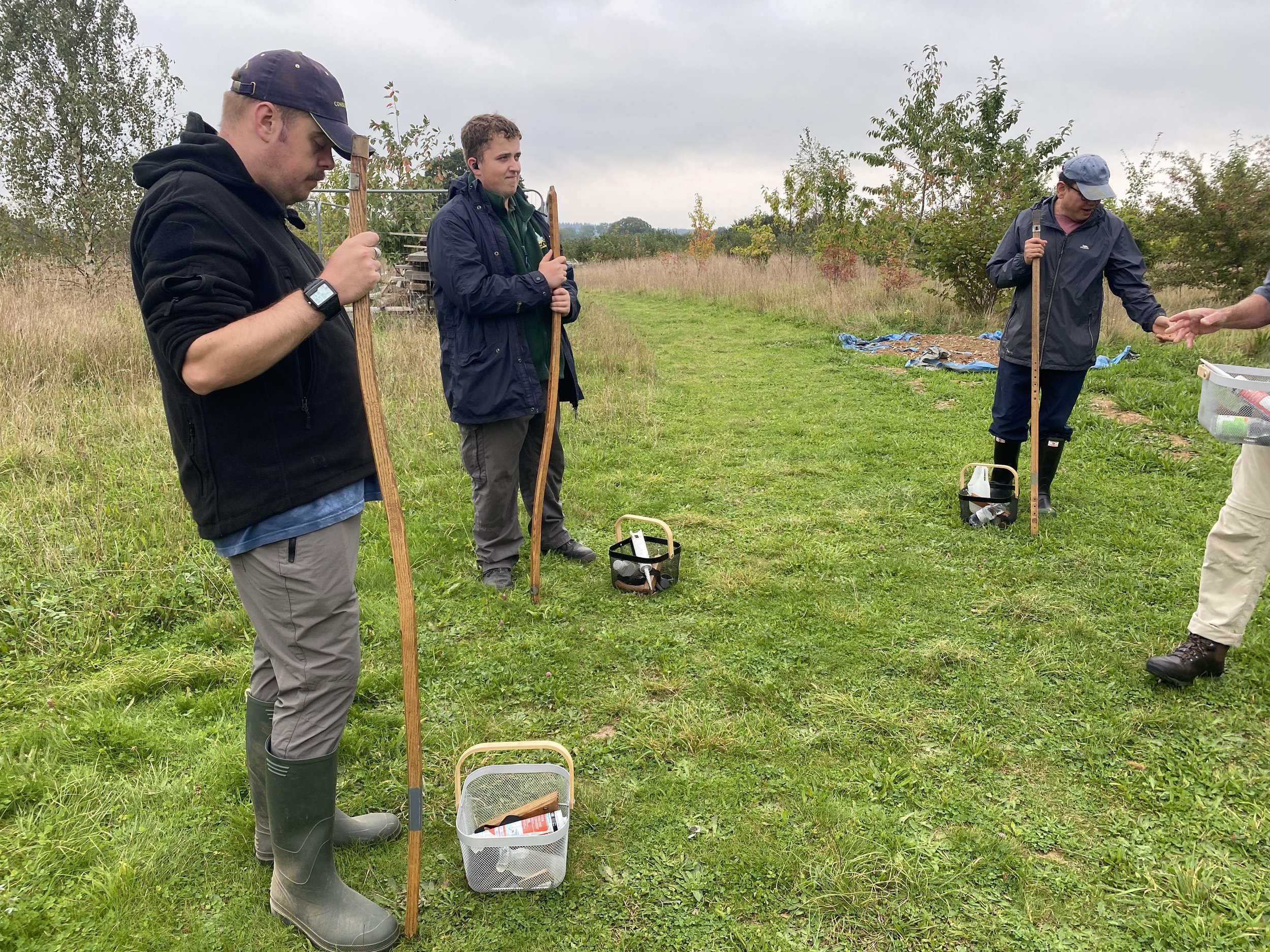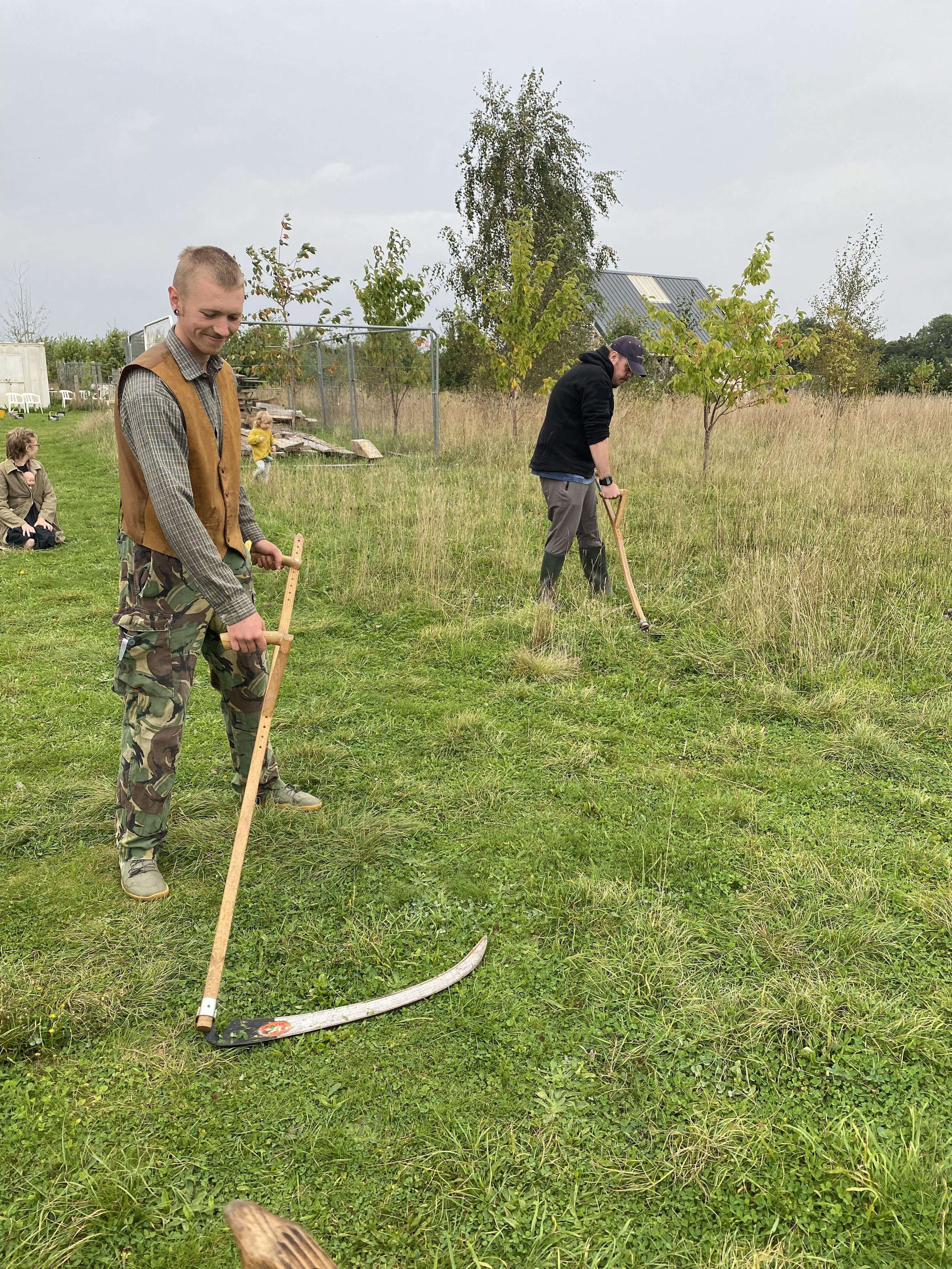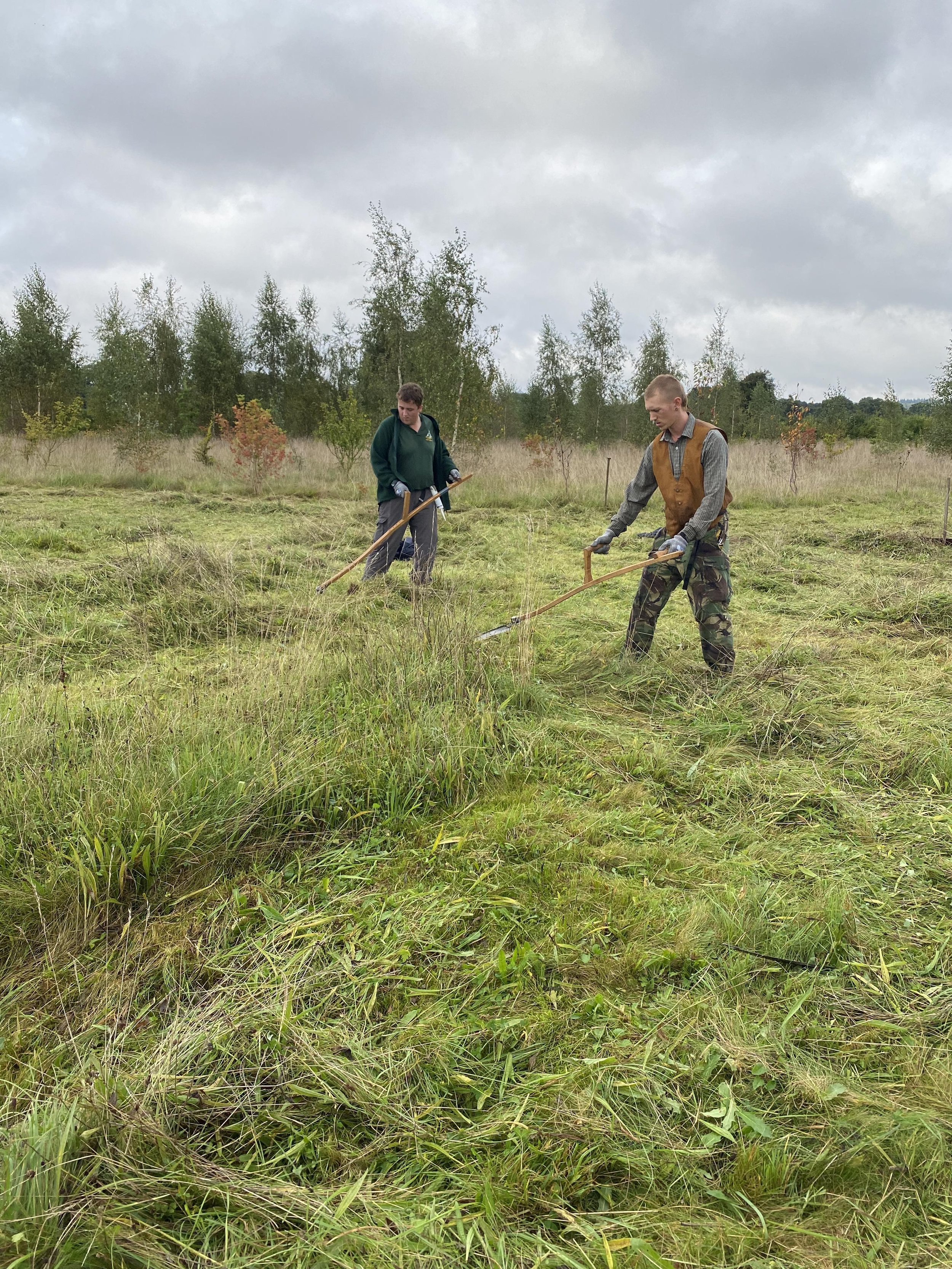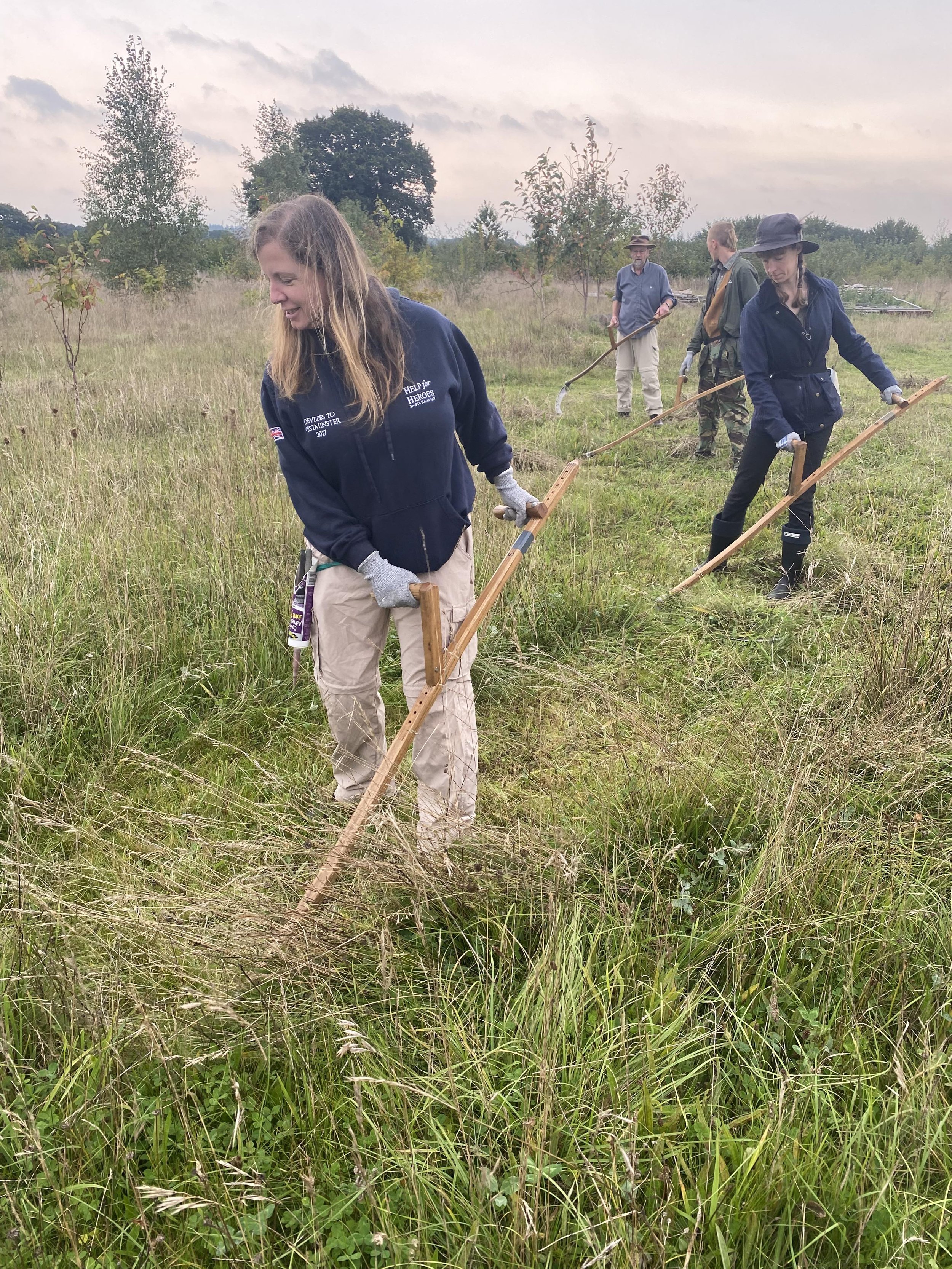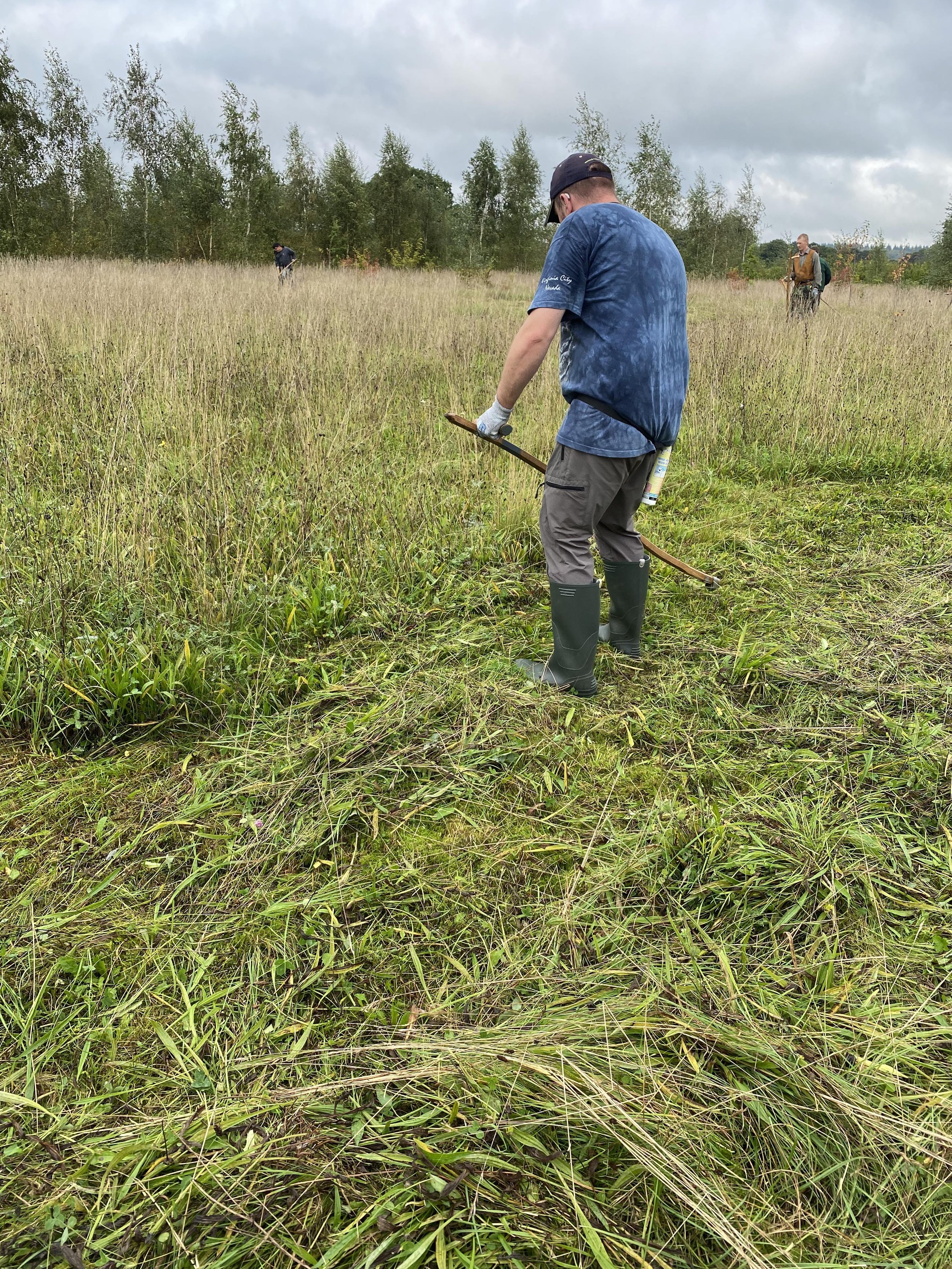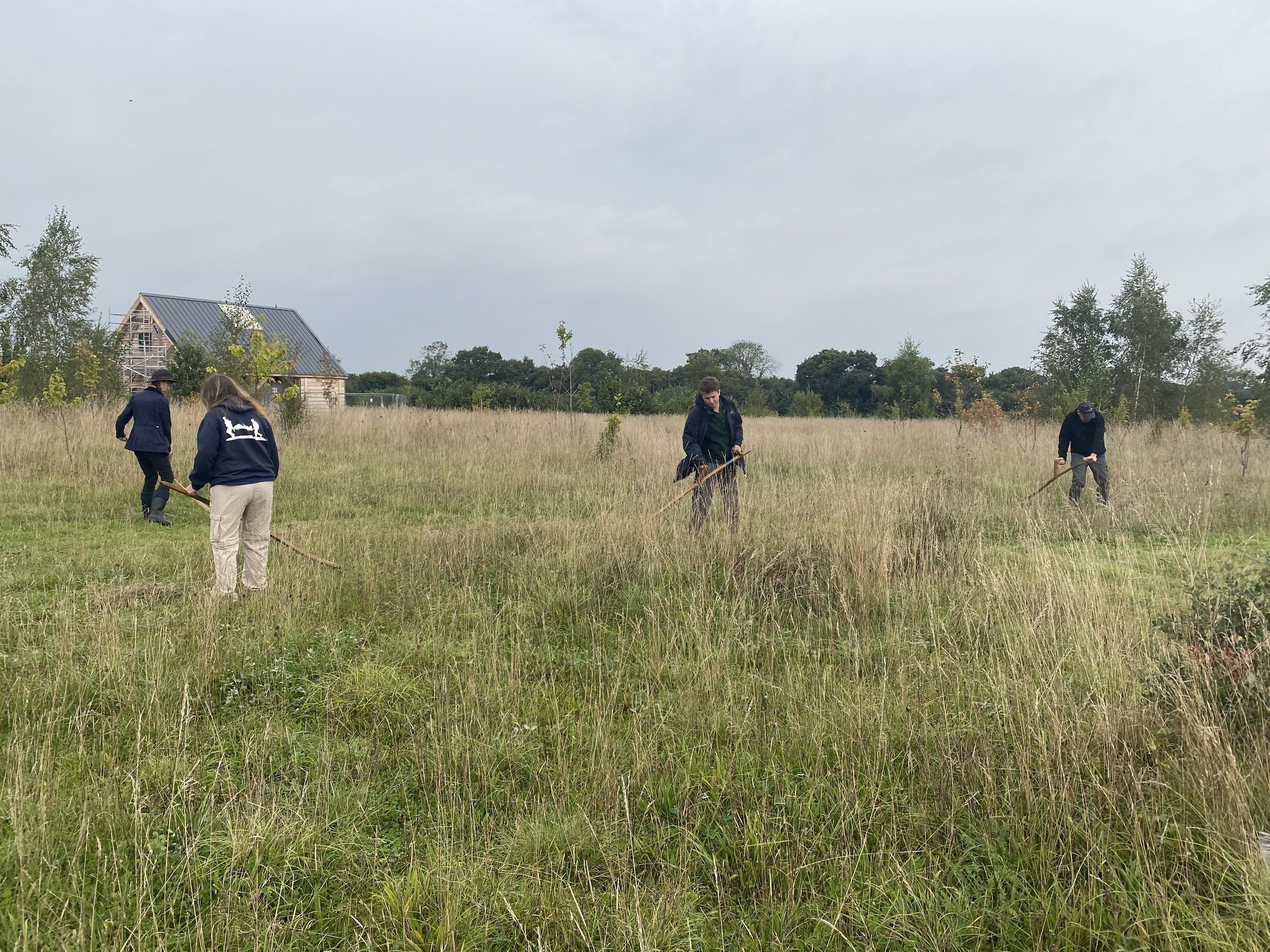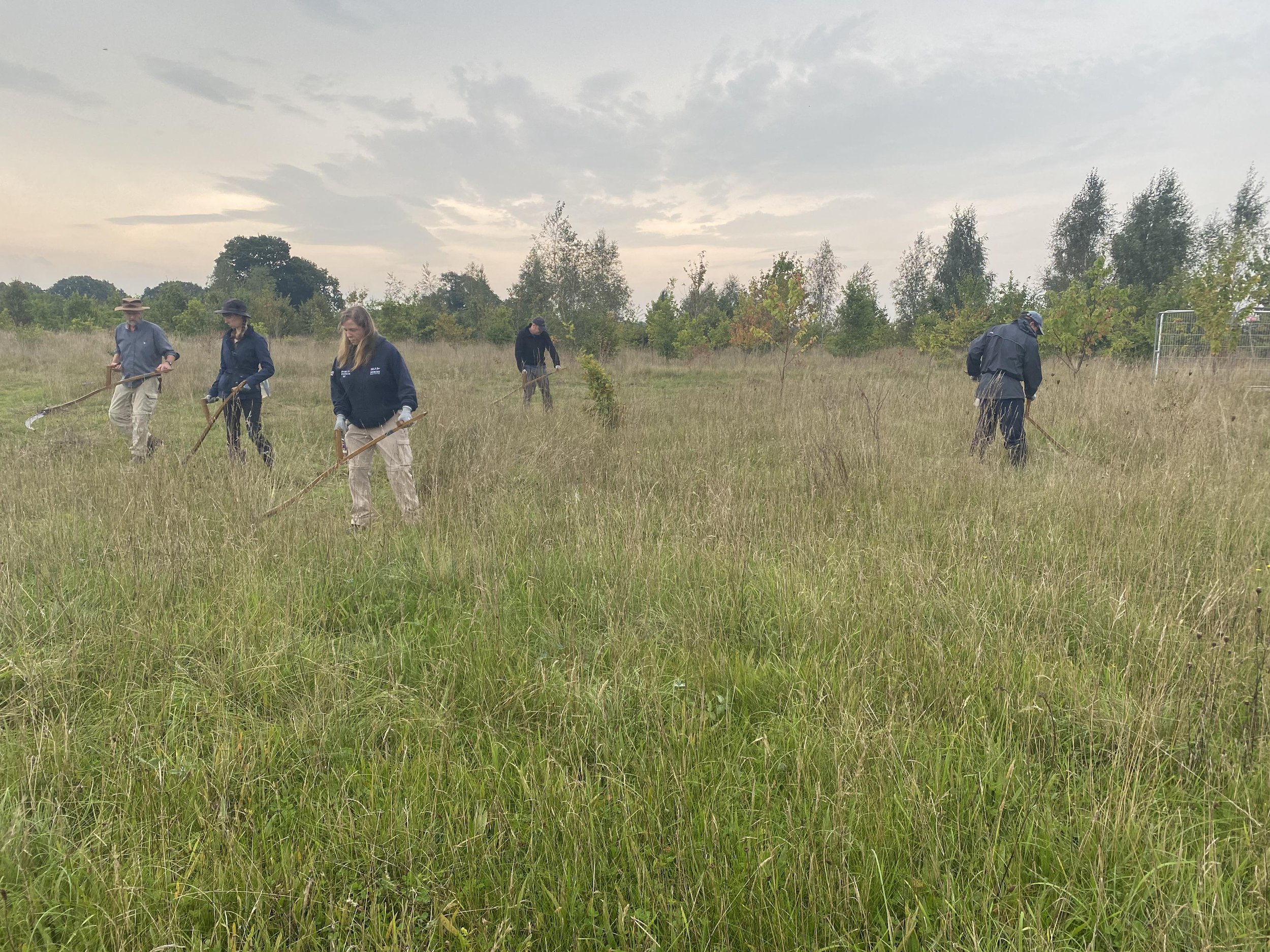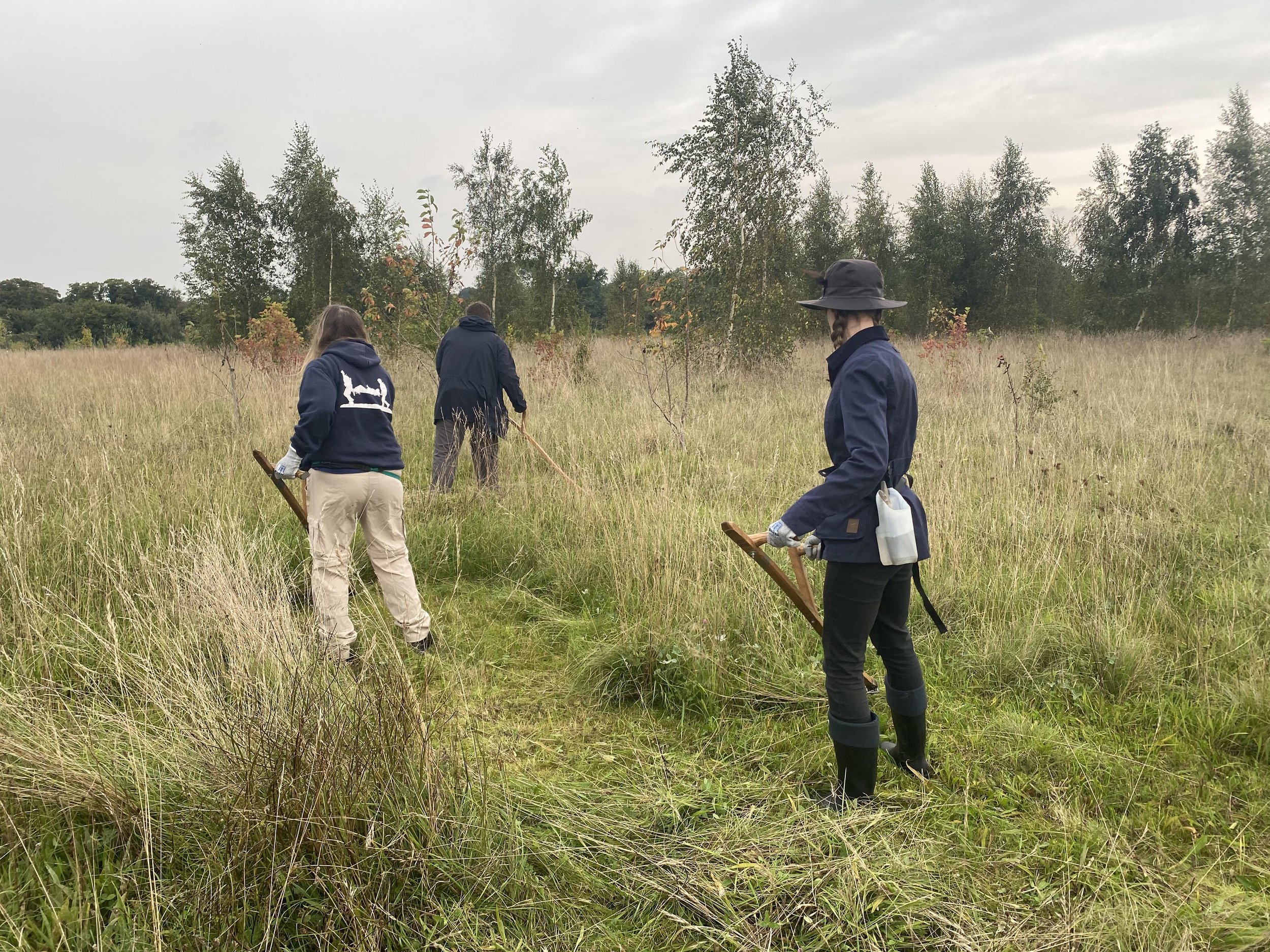Scything Training
On Sunday 17th September several members of our team spent the day learning the ancient skill of scything, a traditional grassland management technique, with Chris Riley of Pratensis Countryside Services.
Britain has a climate excellent for grass-growing - which means that grass needs constant management. In Harmony Woods we currently rely on hiring ride-on mowers and tractors to cut our rides and meadow a few times each year. Scything, used for centuries as a method to harvest grain crops and hay, fell out of favour in the Industrial Revolution (along with many other ancient skills that required large amounts of time and people), but is now undergoing a revival in the UK.
After an introduction including a brief history of the scythe and why the lightweight Austrian style is generally more favoured now than heavier English ones, the group began by learning the different parts of a scythe and how to set up the grips (handles) to suit each user. The light weight and adjustable grips mean that scything can be done by a range of people. Once blades were fitted the group learned the important safety practices - how to carry the scythe, how to lay it down on the ground when not in use, and how to safely sharpen it using a whetstone (wearing cut-resistant gloves).
Scything is harder than it looks! The mowing action is simple and when done correctly makes cutting easy and efficient (and very satisfying), but it does takes practice to master the technique. The group began by practising in the short grass before moving to the wildflower meadow. The blades need sharpening every few minutes so that they slice rather than hack through the vegetation, so users keep the whetstone handy in a container on a belt around the waist, half-full of water to keep the stone clean.
There are many benefits of scything, as listed by Chris Riley on his website:
Green values
- No fuel is used (except food for the operative). No carbon emissions or other pollution.
- Low carbon manufacture of a long-lasting product.
- Encourages a social activity.
- Keeping skills alive.
- Less direct disturbance of wildlife, and more awareness of toads, nests etc. Less damage to small insects compared with a spinning blade or cord.
- No shredded strimmer cord (nylon) debris left behind.
Eco-sceptic practical benefits
- Low capital cost, compared to brushcutters, which also have a PPE and training cost.
- Very low running cost.
- Undamaged cut stems are often easier to clear away.
- Above factors make it cost effective (when labour costs are also included) in certain circumstances.
- Volunteers can readily be equipped, as there is not the need for PPE, training etc.
- Not dependent on a spare parts supply chain.
- Extremely portable.
Operator benefits:
- There is no flying debris, such as dog mess, or poisonous sap (eg Hemlock Water-dropwort).
- 'Good' exercise. When used correctly, mowing with a scythe is not back-breaking, but core strengthening. The lack of protective clothing enhances freedom of movement too.
- Silent in operation – you can listen to bird song, and not disturb others. You can chat whilst you work.
- Promotes mindfulness and mental wellbeing.
- A connection with history. You may enjoy a romantic association with the toil of past generations, and the knowledge of its continuation into the future.
- Aesthetic values – poetry in motion! A timeless beautiful rhythmical act of work.
- A connection with the land. Whether barefoot or shod, mowing provides touch as well as sounds and smells of the meadow.
- You can even take part in competitions!
Do take a look through Chris’ website, and that of the Scythe Association, if you’d like to learn more about scything!
In the days following the scything session, the mown grass was all raked up and removed from the meadows and rides by our Monday workday volunteer team. Removing cuttings is vital so that the nutrients do not go back into the soil as the cut grass decomposes. The precious wildflowers we want to encourage need soil with low levels of nutrients, where more competitive species like grasses and thistles cannot take as much of a hold.
At Andover Trees we are passionate about nature conservation and keeping traditional skills and crafts alive, so it was great to finally arrange a scything course for our volunteers. We purchased two scythes from Chris and the aim is to use this team to cut the meadows and rides in Harmony Woods rather than relying on a third-party mechanical mower. The group really enjoyed the day (despite the rain for part of it) and look forward to practising and getting better.
